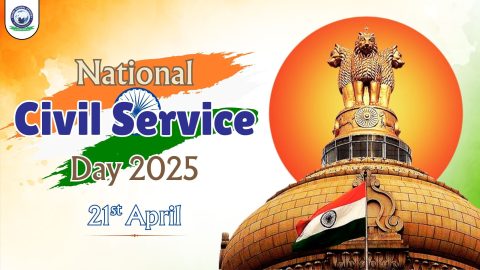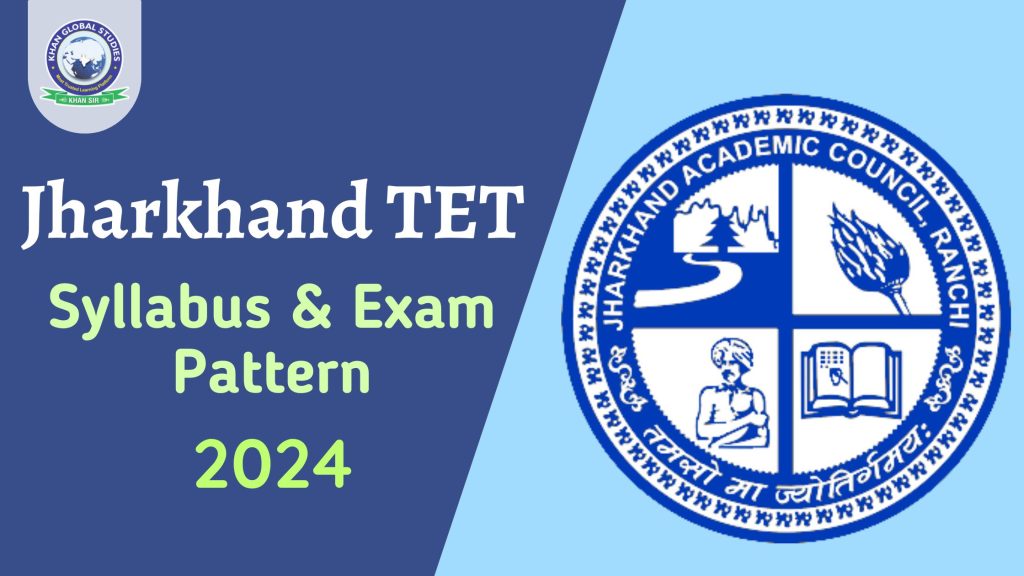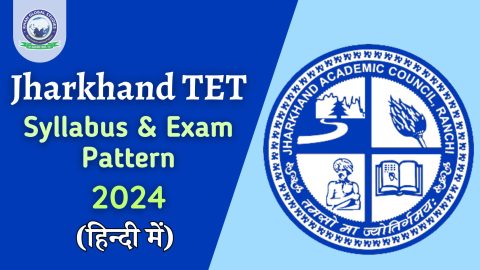Jharkhand Academic Council (JAC) has released the Jharkhand TET Syllabus 2024 on its official digital portal. The council has released the syllabus for both primary and upper primary teachers online. The JTET Syllabus has been released along with the exam pattern for the upcoming exam, including the revised marking scheme, total number of questions, and additional details. Candidates appearing for the JTET 2024 exam should follow the Jharkhand TET Syllabus PDF 2024 to plan their preparation.
Jharkhand TET Exam Overview
| Conducting Body | Jharkhand Academic Council, Ranchi |
| Exam Name | Jharkhand Teacher Eligibility Test (JHTET) 2024 |
| Exam Level | State-level |
| Mode of Exam | Offline |
| Total Papers | Paper 1 (for Primary Level) Paper 2 (for Upper Primary Level) |
| Marking Scheme | +1 for each right answer |
| Negative Marking | No |
| Time Duration | 150 Minutes (30 Min extra for vision impaired) |
| Official Website | https://jac.jharkhand.gov.in/jac/ |
Jharkhand TET Syllabus 2024
The JTET Syllabus 2024 has been distributed separately for Paper 1 and Paper 2 by JAC. Candidates preparing for the Jharkhand TET exam should give priority to the subject-specific syllabus. These subjects mentioned in the Jharkhand TET Syllabus 2024 play an important role in the written exam. Check out the section-wise JTET Exam Syllabus to prepare carefully for the entrance exam.
JTET Syllabus for Paper 1
Child Development & Pedagogy:
- How Children learn and think.
- Motivation and Implications for Learning.
- Individual Differences.
- Teaching-learning process.
- Intelligence.
- Child Development.
- Learning Difficulties.
- Understanding diverse learners.
- Personality.
- Adjustment.
- Action Research.
- Theories of learning and its implication.
- Meaning and Concept of learning and its processes.
- The Role of Heredity and Environment.
- Meaning and purposes of Assessment.
- Factors Affecting Learning.
- Right to Education Act 2009.
Language I ( Hindi / English)(Urdu / English for Urdu Teachers):
- Comprehensive & Continuous Evaluation.
- Development of Language Skills, Teaching Learning Materials.
- Unseen Prose Passage.
- Teaching Learning Materials.
- Principles of Teaching English.
- Framing Questions Including Wh-questions.
- Unseen Prose Passage
Language II (Regional Languages):
- Modal Auxiliaries, Phrasal Verbs, Idioms, Literary Terms.
- Unseen Prose Passage.
- Unseen Poem.
- Basic knowledge of English Sounds and their Phonetic Transcription.
- Principles of Teaching English, Communicative Approach to English Language Teaching,
- Challenges of Teaching English
Mathematics:
- Shapes & Spatial Understanding.
- Pedagogical issue.
- Data Handling.
- Money.
- LCM & HCF.
- Division.
- Volume.
- Numbers.
- Addition and Subtraction.
- Multiplication.
- Geometry.
- Measurement.
- Weight.
- Time.
- Patterns.
- Decimal Fractions.
Environmental Studies:
- Water.
- Clothes dresses & their care.
- Natural Resources.
- Our Punjab.
- Solar System.
- Basic needs.
- Food, resources, and care.
- Our Surroundings.
- Air.
- Days and Nights.
- Geographical features and changes.
- Transportation, communication and its development.
- Local Bodies (Rural & Urban).
- Pollution.
- Community Buildings.
- Weather & climate.
- Habitats, types.
- Parts of Body (internal & external).
- Festivals (school, family & national).
- Group songs.
- Health, good habits & personal hygiene.
- Living and nonliving.
- Looking at the trees, plants & animals.
- Parts of plants.
- Disposal of solid waste.
- National property.
- Disaster management.
- First Aid.
- Diseases.
JTET Syllabus for Paper 2
Child Development & Pedagogy (Compulsory):
- How Children learn and think.
- Motivation and Implications for Learning.
- Individual Differences.
- Teaching-learning process.
- Intelligence.
- Child Development.
- Learning Difficulties.
- Understanding diverse learners.
- Personality.
- Adjustment.
- Action Research.
- Theories of learning and its implication.
- Meaning and Concept of learning and its processes.
- The Role of Heredity and Environment.
- Meaning and purposes of Assessment.
- Factors Affecting Learning.
- Right to Education Act 2009.
Language I ( Hindi / English)(Urdu / English for Urdu Teachers) (Compulsory):
- Comprehensive & Continuous Evaluation.
- Development of Language Skills, Teaching Learning Materials.
- Unseen Prose Passage.
- Teaching Learning Materials.
- Principles of Teaching English.
- Framing Questions Including Wh-questions.
- Unseen Prose Passage
Language II (Regional Languages) (Compulsory):
- Modal Auxiliaries, Phrasal Verbs, Idioms, Literary Terms.
- Unseen Prose Passage.
- Unseen Poem.
- Basic knowledge of English Sounds and their Phonetic Transcription.
- Principles of Teaching English, Communicative Approach to English Language Teaching,
- Challenges of Teaching English
Mathematics & Science Teachers:
- Number System.
- Knowing our Numbers.
- Ratio and Proportion.
- Introduction to Algebra; Algebraic identities, polynomials.
- Geometry.
- Understanding Elementary Shapes (2-D and 3-D).
- Basic geometrical ideas (2-D).
- Symmetry: (reflection).
- Compound Interest Discount.
- Algebra.
- Quadrilateral.
- Playing with Numbers.
- Whole Numbers.
- Negative Numbers and Integers.
- Fractions Exponents; surds, squares, cube, square root.
- cube root Profit & Loss.
- Data handling, statistics.
- Constructions (using Straight edge Scale, protractor, compasses).
- Mensurations; circle, sphere, cone, cylinder, triangles.
Science:
- The World of the Living organisms, microorganisms, and diseases.
- Acids, base, salt.
- Materials of daily use.
- Effect of population growth & human activities in the environment.
- Motion.
- Force.
- The Universe.
- Food; production & management.
- The structure of an Atom.
- Molecule.
- Metals & Nonmetals.
- Cleaning food.
- Materials.
- Moving Things People and Ideas.
- Air.
- Water.
- Carbon.
- Food.
- Sources of food.
- Compounds.
- Components of food.
- Change of matter.
- Soil.
- Work & Energy.
- Natural Phenomena.
- Magnets & magnetism.
- Electric current and circuits.
- Pedagogical issues.
- Light.
- Soun.
- Natural Resources.
- Pollution.
- Environmental concerns; regional & national.
- Sources of energy.
Social Studies Teacher:
- History: Culture and Science.
- New Kings and Kingdoms.
- Sultans of Delhi.
- Regional Cultures.
- India After Independence.
- Social Change.
- Architecture.
- Creation of an Empire.
- The First Cities.
- The Early States.
- New Ideas.
- The First Empire.
- Contacts with Distant lands.
- Political Developments.
- The Earliest Societies.
- The Nationalist Movement.
- The Revolt of 1857-58.
- Colonialism and Tribal Societies.
- Rural Life and Society.
- Women and reform.
- Challenging the Caste System.
- The Establishment of Company Power.
- The First Farmers and Herders.
- Geography: Air.
- Water.
- Human Environment: settlement, transport, communication.
- Planet: Earth in the solar system.
- Agriculture.
- The environment in its totality: natural and human environment.
- Resources: Types- Natural and Human.
- Globe.
- Geography as a social study and as a science.
- The Constitution.
- Unpacking Gender.
- State Government.
- Understanding Media.
- Diversity.
- Pedagogical issues.
- Parliamentary Government.
- The Judiciary.
- Government.
- Social Justice and the Marginalised.
- Local Government.
- Making a Living.
- Democracy.
JTET Exam Pattern 2024
The JTET exam pattern 2024 is delineated for both Paper 1 and Paper 2. Paper 1 is for primary teachers, while Paper 2 is for upper primary teachers. The exam is conducted in an offline format.
JTET Exam Pattern for Paper 1
| Subject | No. of Questions | Maximum Marks |
| Child Development & Pedagogy | 30 | 30 |
| Language I ( Hindi / English)(Urdu / English for Urdu Teachers) | 30 | 30 |
| Language II (Regional Languages) | 30 | 30 |
| Mathematics | 30 | 30 |
| General Studies | 30 | 30 |
| Total | 150 | 150 |
JTET Exam Pattern for Paper 2
| Subject | No. of Questions | Maximum Marks |
| Child Development & Pedagogy | 30 | 30 |
| Language I ( Hindi / English)(Urdu / English for Urdu Teachers) | 30 | 30 |
| Language II (Regional Languages) | 30 | 30 |
| (a) Maths & Science | 60 | 60 |
| (b) Social Studies | ||
| (c) Language Teacher/Other Teacher | ||
| Total | 150 | 150 |
The key features of the Jharkhand TET 2024 exam are as follows:
- The Jharkhand TET exam is conducted in pen-and-paper format.
- There is no penalty for wrong answers.
- The exam consists of multiple-choice questions in which candidates have to choose one option.
- Candidates have to solve both the papers of Jharkhand TET 2024 independently.
- The question paper is available in both Hindi and English languages.
- The duration of the JTET exam is 2 hours and 30 minutes, with an additional 30 minutes allotted for visually impaired candidates.



